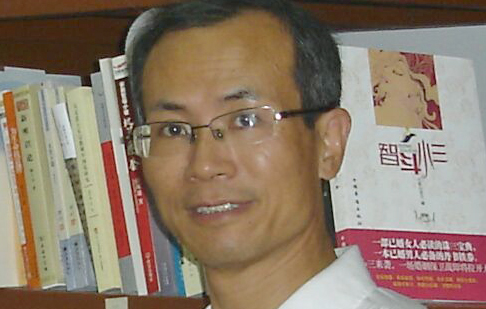OUYANG BING: Research methods crucial to new model of think tanks
 Think tanks can lay an important foundation for China’s future development. In my opinion, the key to building China’s new type of think tanks is properly dealing with the relationship between tradition and innovation. In regard to tradition, we should adhere to the following aspects as we always have.
Think tanks can lay an important foundation for China’s future development. In my opinion, the key to building China’s new type of think tanks is properly dealing with the relationship between tradition and innovation. In regard to tradition, we should adhere to the following aspects as we always have.
First of all, we should adhere to the Party’s leadership of think tanks. The new type of think tanks should be rooted in China’s national conditions. We shouldn’t imitate the so-called “independence of think tanks” in the West, which actually Westerners think is also impossible themselves. Such think tanks are at most independent in terms of research rather than in politics. We therefore should stick to historical tradition and place think tanks under the leadership of the Party to ensure think tanks are armed with fundamental guidance.
Next, we should adhere to the existing good traditions in terms of research methods. This refers to the research capabilities of think tanks, such as improvement in terms of styles of study and writing in research. Think tanks should prioritize investigation. China’s think tanks have been emphasizing the principle of linking theory with practice, highlighting the idea that they should have no right to speak unless they have conducted thorough investigation. In terms of writing, think tanks should depend on facts, providing acceptable and practical ideas.
Next, we should abide by traditional policy in the construction of think tanks. China’s think tanks have comprised government-run and private facilities since the founding of the People’s Repulic of China. The former includes research centers, scientific research institutions, and academies of social sciences led by the government; the latter includes research institutions and advisory organs run by enterprises. Practice has proven that building think tanks in these two ways conforms to China’s national conditions. Think tanks can be dominated by the government and also supplemented by other forces.
Innovation is needed for the construction of a new type of think tanks.
First, information from all levels of government should be open to think tanks. In contrast to previous research institutions, new think tanks will go out of “ivory towers” to become active participants in decision making in public affairs, which requires a lot of background information and research. However, there currently are few institutionalized channels for governments to release much of their valuable information. Governments should share specialized and sensitive data and materials with think tanks to create conditions for them to get involved in public decision making.
Second, research barriers among different think tanks should be broken to form a common community of think tank research. Vertically, compared to local think tanks, those on the national level have “monopolized” more important fields such as fundamental policy and national defense diplomacy. It is hard for them to get involved with each other. Horizontally, think tanks in different parts of the country have different research focuses. Eastern think tanks focus on coastal development. Those in the center specialize in upgrades and development and in the western region, the emphasis is the great development strategy. This is not conducive to the comprehensive and balanced development of think tanks. All think tanks should be joined together through issues and projects, making progress amid collaborative research.
Third, think tanks should stick to their own research orientations. Different research institutions have different “professional attributes.” For example, government think tanks are responsible for macro policy while those at universities deal with educational policy, and enterprise ones handle micro-policy of production and operation. With work focus shifted to economic construction after the reform and opening-up, these research institutions have all surged up to the economic field, resulting in bad influences on social governance. Think tanks should therefore return to “professional attributes,” participating in nation-building in multiple ways.
Ouyang Bing is a research fellow from the Jiangxi Institute of Economic and Social Development Strategy at the Jiangxi Provincial Party School.

 PRINT
PRINT CLOSE
CLOSE